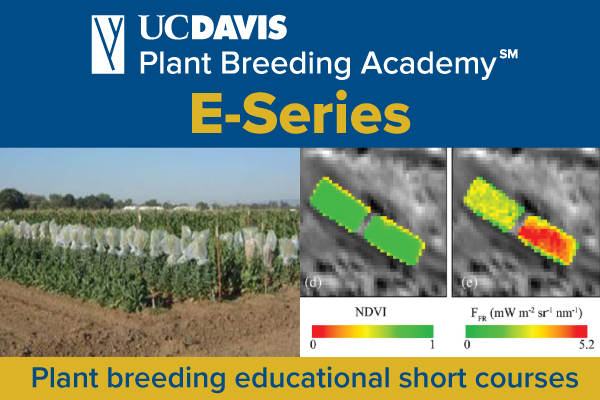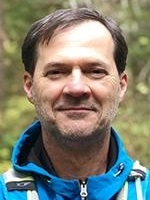
COURSE OVERVIEW:
Foundational level, designed for plant breeders and their teams, this course will aid in the design and development of a true hybrid breeding engine, covering the topics of breeding targets, germplasm, and trait organization into pools, the importance of hybrid testing/evaluation, early vs late generation testing, choice of testers, and more.
This course is recommended prerequisite for UC Davis Plant Breeding Academy.
May 23 & 25, 2023
(2 - half days, ONLINE)
Time: 7:00 a.m. - 11:30 a.m. Pacific time zone (PDT)
Early Registration Price: $740
(Before January 31st, 2023)
Regular Registration Price: $850
INSTRUCTORS:

Ken Owens
Ken Owens comes with over 37 years of experience in Vegetable Breeding. A University of Wisconsin-Madison graduate, Ken began his career as a cucumber and pepper breeder with Peto Seed in Woodland, California back in 1982. In 2000 he co-founded a start-up which later became recognized as Magnum Seeds where he helped establish Breeding, Seed Production, and Sales activities for 6 vegetable classes. During his prolific 37-year vegetable breeding career, Ken and his team bred countless varieties for global markets, worth almost half a Billion Dollars in Sales. Ken is looking forward to giving back and sharing his experiences with new generations of plant breeders.

Jovan Djordjevic
Jovan Djordjevic spent over 25 cumulative years with Monsanto, Limagrain, and BASF Vegetable Seeds, where he was most recently director of their research and breeding teams and developed crop strategy (vegetable seeds) as BASF Vegetable's Global R and D Team Lead for breeding. An accomplished and experienced plant breeder, he brings broad-based expertise in plant breeding research and development, including the application of new technologies in breeding, building innovation culture & teams, linking business and complex R and D activities, and building organizational strategies centered around customers and consumers. Jovan is passionate about plant breeding and research technologies contributing to world food production, in particular those that involve fewer detrimental environmental impacts.
Questions? Contact Jeffrey Robinson at jerobinson@ucdavis.edu
